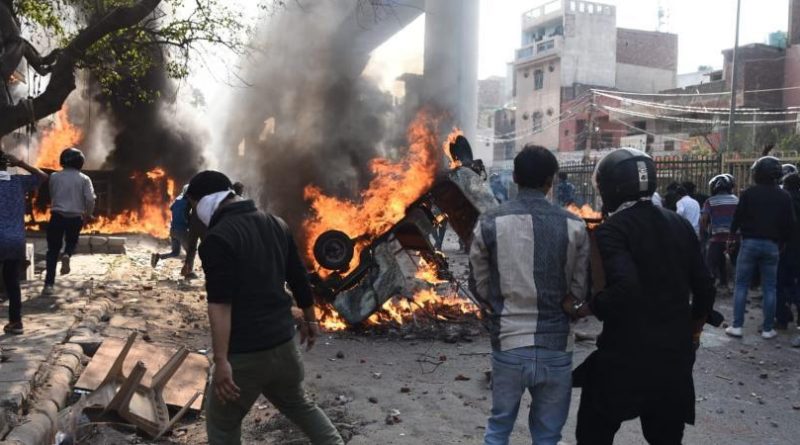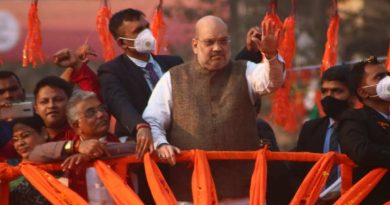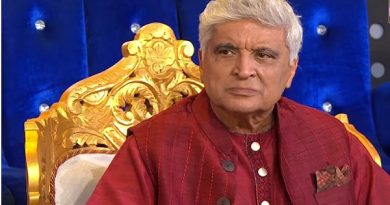| |
|---|
News Desk: Disproportionate application of draconian laws, divisive media reporting and jail terms for students and activists were some of the main highlights of 2020. Almost every month this year, several activists and academics have been either arrested or booked under counter-terrorism law, sedition and other laws, for merely expressing their discontent against the current dispensation.

There has been a clear pattern at play. In states where the Bhartiya Janata Party (BJP) is in power, the local police worked overtime profiling and targeting critical voices. In other states, central agencies like the National Investigations Agency (NIA) and the Enforcement Directorate (ED) and the Central Bureau of Investigation (CBI) were deployed.
On December 12, 2019, the Narendra Modi administration passed the discriminatory Citizenship (Amendment) Act. This was met with country-wide protests led primarily by university students and common citizens. The protests that began last December spilled over the most part of 2020. The communally charged atmosphere was further fanned, leading to an outbreak of full-fledged communal violence targeting the Muslims of North Delhi. At least 53 people, a majority of them Muslims, lost their lives in the deadly violence. Scores were severely injured.
The one-sided attack, with obvious evidence in the public domain, was overlooked, and the investigations instead focussed on academics, activists, and opposition leaders, with the Delhi police naming them as “prime suspects”. After FIRs, arrests followed and almost all who were arrested continue to be in jail. Since then, their personal liberty has remained at the judiciary’s mercy.
In November, a long list of activists, student leaders, scholars and journalists who have continued to suffer prolonged incarceration and how their applications for bail or quashing of FIRs have been pending without hearing for long periods of time before different courts.
Year 2020 is not unique that way. This crackdown on human rights defenders began soon after the BJP came to power in 2014. In 2018, nine activists, academics and lawyers were arrested under trumped up charges and labelled ‘Urban Naxals’. By mid- 2020, the number increased to 16 and two prisoners – in their 80s – are among those incarcerated. The accusations have shifted from conspiring a riot at Bhima Koregaon village in the outskirts of Pune district to plotting to kill Modi to being the most dreaded “urban Naxals”. The trial, even over two years later, is yet to nowhere close to commencement.
Identical patterns have been followed in the bulk arrests that have followed in Delhi, Uttar Pradesh, Kashmir and Assam. The charges have ranged from being “masterminds” of the Delhi riots to making “seditious” speeches during the anti-CAA protests. Most arrestees have multiple cases slapped against them, virtually making their release impossible. Writing critical or satirical tweets against the current dispensation have also landed several behind bars. Elderly citizens in need of sippers to drink water and pregnant women were not spared either.
It will be years before these charges are put on trial, but by then these activists would have spent years in jail – which is a primary purpose of such charges. After all, the process itself is designed to be a punishment.
There has been an evident growing trend in usage of draconian laws like the Unlawful Activities (Prevention) Act in the past few years. The National Crime Bureau Record (NCRB), which maintains the data of the nature of crime and the corresponding laws applied, has noted a whopping 165% rise in the number of UAPA cases since 2016. While 35 cases were registered under UAPA in 2016, it has dramatically risen to 93 in 2019. There is no consolidated data to find out the number of case files this year, but purely going by the trend around and the number of people arrested, the number of cases must have exponentially increased. The NCRB data does not tell how many of these cases are politically motivated and how many were registered for actual terror activities.
Globally, year 2020 will be known for how the novel coronavirus ravaged lives and economies. In India, however, the year would well be remembered for how personal liberties were trampled and anti-terror legislations like UAPA, that were crafted for “exceptional circumstances”, have been routinised.
Alongside counter-terrorism laws, defamation laws were more generously used against those criticising both the state and judiciary. Senior advocate Prashant was tried and held guilty for two of his tweets on the chief justice of India (CJI) S.A. Bobde. The CJI was photographed reportedly riding a Rs 50 lakh motorcycle belonging to a BJP leader in Nagpur without a mask or helmet.
Bhushan posted the picture, with the following text: “CJI rides a 50 Lakh motorcycle belonging to a BJP leader at Raj Bhavan Nagpur, without a mask or helmet, at a time when he keeps the SC in Lockdown mode denying citizens their fundamental right to access justice!” Justice B.R. Gavai said that Bhushan committed “serious contempt of the court” and eventually fined him Re 1.
Similar criminal contempt proceedings were initiated against actor Swara Bhasker, and most recently comedian Kunal Kamra.
Permission for protests were virtually denied across states. While the spread of COVID-19 was cited as a reason for denial of permissions, the government was evidently afraid of the growing dissenting voices against it.
In October, following the rape and death of a young woman from Dalit community from Hathras in Uttar Pradesh, people were enraged and sought justice. At the forefront was Azad Samaj Party leader Chandrashekhar Azad, who along with 400 others was booked for violating Section 144 in the area. They were also accused of rioting and booked under the Epidemic Diseases Act.
It is not like the BJP alone discouraged dissent. In Maharashtra, where the Maha Vikas Aghadi government ousted the BJP and took over last November, similar pattern was followed. Young cultural activists were served externment notices and asked to pay up an unbelievable Rs 50 lakh as a surety sum. The Maharashtra government, however, following public outrage offered to close the extrernment proceedings against activists and students who had participated in protests through the year.




